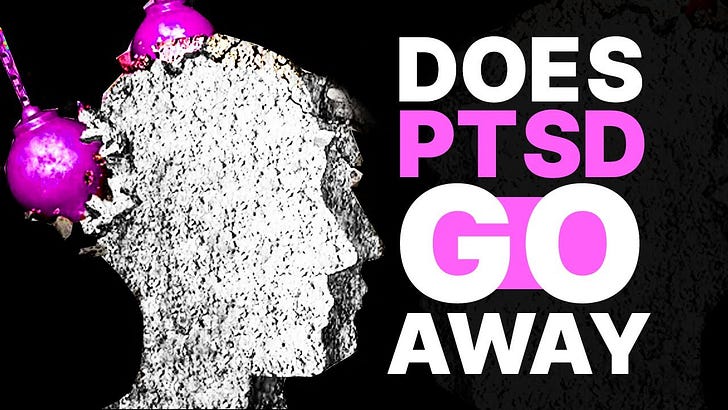Does PTSD Ever Go Away?
Post-Traumatic Stress Disorder (PTSD) is a psychological response to traumatic events, such as car accidents, combat, assault, or natural disasters. Symptoms like vivid flashbacks, nightmares, hypervigilance, and emotional numbness can last for a long time after the event has occurred. Abuse, whether physical, emotional, or sexual, can leave lasting scars and result in the development of PTSD. Prolonged exposure to interpersonal trauma, such as abuse, significantly increases the risk of developing PTSD symptoms.
Want to watch a full video on this topic? Just click the link below:
PTSD affects brain chemistry and structure, specifically the regions responsible for memory and emotion, which may struggle to regulate stress responses, perpetuating the trauma cycle. Research shows that with appropriate treatment and support, some people's PTSD symptoms can significantly improve over time. Therapy, particularly trauma-focused therapies such as Cognitive Behavioral Therapy and Eye Movement Desensitization and Reprocessing, has shown promise in assisting people in reframe traumatic memories and develop healthier coping strategies.
If you would to see a more detailed discussion on this topic, please consider subscribing to my paid substack at a discounted rate:
However, the notion that PTSD completely disappears may be overly simplistic. Studies show that even after symptoms have subsided, certain triggers or reminders can reactivate emotional responses associated with the trauma. Researchers have also investigated the relationship between resilience and post-traumatic growth, demonstrating the human ability to adapt and thrive in the face of adversity.
In conclusion, while PTSD may not go away completely, individuals can find healing and resilience through various therapeutic approaches and support networks. Understanding that recovery is a journey, not a destination, enables us to approach PTSD with empathy and effective treatments.




